The days of the All Blacks marching into foreign lands with all the gaiety of grave diggers, as someone once wrote, are a relic of their stoic and pioneering past.
Modern All Blacks are more likely to be lolling around on their Pilates mat and sipping green tea than they are throwing sheep about on the farm and necking half a brewery.
But what unites present and past is their deep hatred of losing and the profound effect defeat has on their psyche. The All Blacks, of any era, have never let a loss find a seat within their soul.
In 100-plus years of history the All Blacks have won an extraordinary number of tests, cleaned out the Lions multiple times and collected three World Cups. They spent an entire decade as the world’s number one team and they have held the Bledisloe Cup since 2003, and yet, despite drowning in success, New Zealanders collectively wallow in those times the All Blacks have failed.
Their rugby history is not defined by defeats, but they stand out as the more significant landmarks. The losses are the lighthouses by which the All Blacks plot their path: the games which have forged stronger community bonds.
Ask Kiwis where they were when Sean Fitzpatrick fell to his knees exhausted in Pretoria 1996 with tears streaming down his face after the All Blacks won their first series in the Republic and not many will know.
Ask them where they were when France knocked the All Blacks out of the World Cup in 2007 and the answer will be delivered in intimate, painful detail, the full horror of that night in Cardiff indelibly stored in most New Zealanders’ hard drives.
In 2014 Colin Slade kicked a winning conversion to beat Australia long after the hooter in Brisbane and in 2017, Beauden Barrett snatched a victory when he sliced through a tiring Wallabies defence with two minutes remaining in Dunedin.
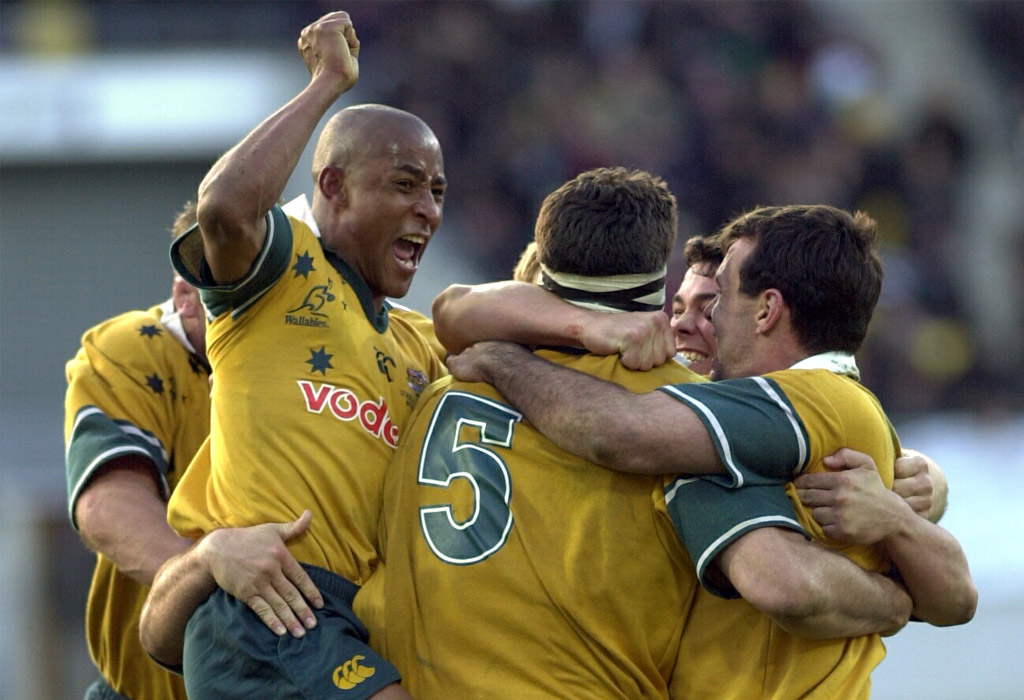
These were glorious tales of resilience, bravery and magical rugby, but New Zealanders don’t dwell so much on those two great escapes, but instead can’t stop fixating about the match in Wellington 2000 when Wallabies captain John Eales kicked the winning penalty or indeed the match in Sydney the following year when Toutai Kefu waltzed through four tackles to win it at the death for Australia.
New Zealand is not buoyed by its victories and success, but instead haunted and driven by its failures. And there are two specific failings that truly grip them and keep them awake at night.
More than anything, the All Blacks hate losing to England and they hate losing at World Cups.
The England business goes back to 1993 when the All Blacks lost 15-9 at Twickenham. The defeat was a hammer blow because the All Blacks had crushed Scotland the week before and felt they were finally coming good after rebuilding following a poor 1991 World Cup campaign.
Their rugby history is not defined by defeats, but they stand out as the more significant landmarks. The losses are the lighthouses by which the All Blacks plot their path: the games which have forged stronger community bonds.
What hurt more, however, was the perceived lack of humility by England’s fans, players and administrators. The RFU had organised a 10-year reunion for the 1983 England team which had also beaten the All Blacks and paraded them at the after-match function in 1993.
It was three, long torturous hours for the All Blacks to be at the Guildhall amidst these celebrations and as they left, Fitzpatrick turned to Olo Brown, the quietly spoken prop sitting next to him on the team bus, and said: “Never again, Olo. Remember this because we don’t want to feel like this ever again.”
That loss ate away at the All Blacks for two whole years. Fitzpatrick says it became a mantra for the All Blacks, “Remember 93”, he’d shout as the team headed down the tunnel before every test in 1994 and 1995.
Defeat at Twickenham had consumed them to such an extent that in February 1995 coach Laurie Mains began plotting a specific gameplan such was his certainty that the All Blacks would end up playing England in the World Cup semi-final later that year.
With the sun beating down in Whangarei, the All Blacks were working through specific scenarios they would use against England four months later. “Laurie had plotted the tactics we would be using to play against England and we rehearsed them and rehearsed them,” veteran lock Ian Jones said of those pre-World Cup camps.
“We practised the switch kick-off where the forwards went right and the ball went left and we worked and worked on our strategy. I suppose it was a little bit about revenge. Rightly or wrongly, you didn’t want to lose to them.”
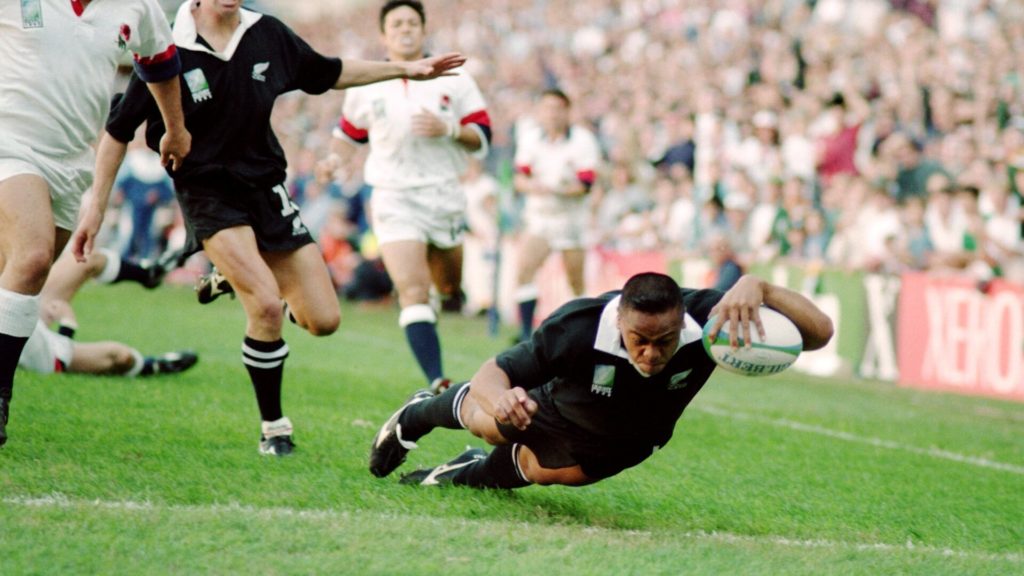
The All Blacks unleashed Hell on England at the World Cup, hammering them 45-29 in a performance that was on a different level in regard to speed and skill. England poked the bear in 1993 and paid the price in 1995.
In terms of being empowered by a loss, nothing compares, however, with the 2007 World Cup quarter-final defeat to France. This was the game that changed the course of history in New Zealand.
It led to one university offering students grief counselling and it ended up splitting the nation – as there were those who could never understand why the coaching team of Graham Henry, Wayne Smith and Steve Hansen were retained after presiding over the worst campaign the All Blacks had known.
The All Blacks spent millions on that campaign and damaged Super Rugby almost beyond repair by keeping their top players out of it for eight weeks so they could prepare for the tournament. They went to France as red-hot favourites but played brainless rugby for 40 minutes in the second half and were eliminated 20-18.
No coach had ever survived a failed World Cup campaign but Henry, Hansen and Smith did and for the better part of the next three years they were under siege, verbally abused at games and told by at least half the country’s media they were undeserving of their jobs.
In late 2010, the All Blacks were again playing sublime rugby and had won 18 of their last 19 tests. Their final match of the year in Cardiff would also be Henry’s 100th in charge and he was asked if any particular victory stood out for him. He replied: “One loss has, I can assure you of that.”
It was a typically dry reply by Henry but he wasn’t actually playing it for laughs. The instant he and his fellow coaches were re-appointed in late 2007, they had one overriding goal and that was to win the 2011 World Cup.
They knew that was the only path to redemption and it became an obsessive quest not just for those three, but also for the likes of captain Richie McCaw, Dan Carter, Mils Muliaina and Ali Williams. The pain of that one defeat and the need to make amends drove the All Blacks from 2008 to the World Cup final in 2011.
It consumed their every waking hour because they knew the only way they could earn redemption, exorcise their demons, was to win the tournament in 2011.
It didn’t matter that they won 88 per cent of their tests in the whole cycle. It didn’t matter that they won two Grand Slams against the Home Unions, three Tri Nations, retained the Bledisloe Cup and sat atop the world rankings.
Judgement would only come in 2011 and Smith, one of the most erudite men and deepest thinkers in the world game, can recall having a moment of near panic on the morning of the World Cup final in Auckland when he realised that potentially the last four years were going to be deemed a failure if the All Blacks didn’t beat France at Eden Park.
The pain of that one defeat and the need to make amends drove the All Blacks from 2008 to the World Cup final in 2011. It consumed their every waking hour because they knew the only way they could earn redemption, exorcise their demons, was to win the tournament in 2011.
It had been an exhausting four years for the All Blacks and it was no wonder when the final whistle blew and they had somehow managed to scrape home 8-7 against France, McCaw fell to the ground, not elated or delirious, but simply overcome with relief that it was all over.
The pain of that one loss in 2007 provided 12 years of fuel for the All Blacks. Between 2012 and August 2019, they only lost nine tests. None were particularly scarring though. None dug into their psyche as deeply as that loss in Cardiff.
Until they lost 19-7 to England in the semi-final of the World Cup. It was the landmark moment among landmark moments and the combination of losing to England and losing at a World Cup was unquestionably more potent than any other defeat in modern All Blacks history.
What made it even more explosive is that the All Blacks were well beaten – they hardly fired at all, failing to deal with England’s power, pace and physicality.
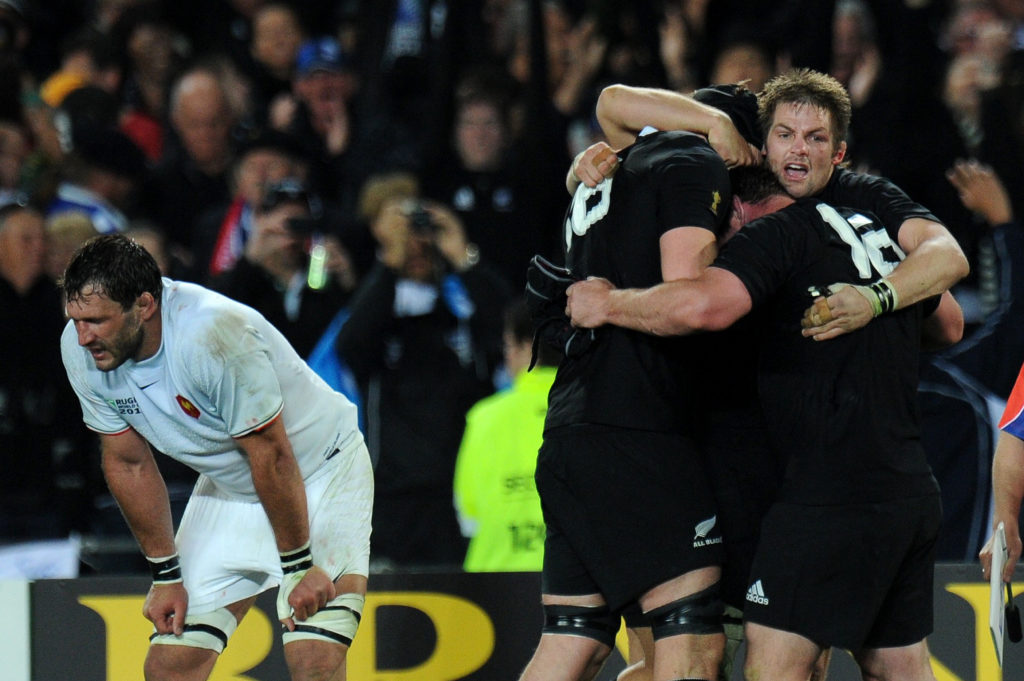
And just as Fitzpatrick told Brown 26 years earlier, senior All Blacks such as Sam Cane, Sam Whitelock and Beauden Barrett walked off the field in Yokohama vowing to never feel so deflated and broken again.
Like McCaw and his senior players before him, Cane and his leaders now have a pain lodged in their soul to fuel them. “Our challenge is now to regroup and reset the goals for the next four years,” former All Blacks coach Steve Hansen said just 20 minutes after his team had been dumped out of the World Cup.
“What I do know is that the young men that are going to come back have a personal pain. They’ve experienced something that you can’t tell them about, you can’t convince them about until it’s personal to themselves. And it’s now personal. So that will make them a little bit more dangerous.”
No nation is more adept at harvesting the emotional pain of a loss than New Zealand so of course they intend to use the defeat to England as a means to drive them through this World Cup cycle.
It will be their North Star. The moment they come back to every now and again when they need to re-set their goals or refine their game-plan.
When their lungs are burning and legs heavy, the memory of Yokohama will be in the pit of their respective stomachs pushing them beyond their limits. Come the biggest games, new captain Cane will quietly remind everyone to “remember Yokohama 2019”.
Probably, the All Blacks would admit that while they remained an excellent team in 2018 and 2019, they had slipped from the heights they reached in 2015 and 2016.
They needed a moment to redirect and re-energise themselves, an event to halt their gradual decline and return them to the summit.
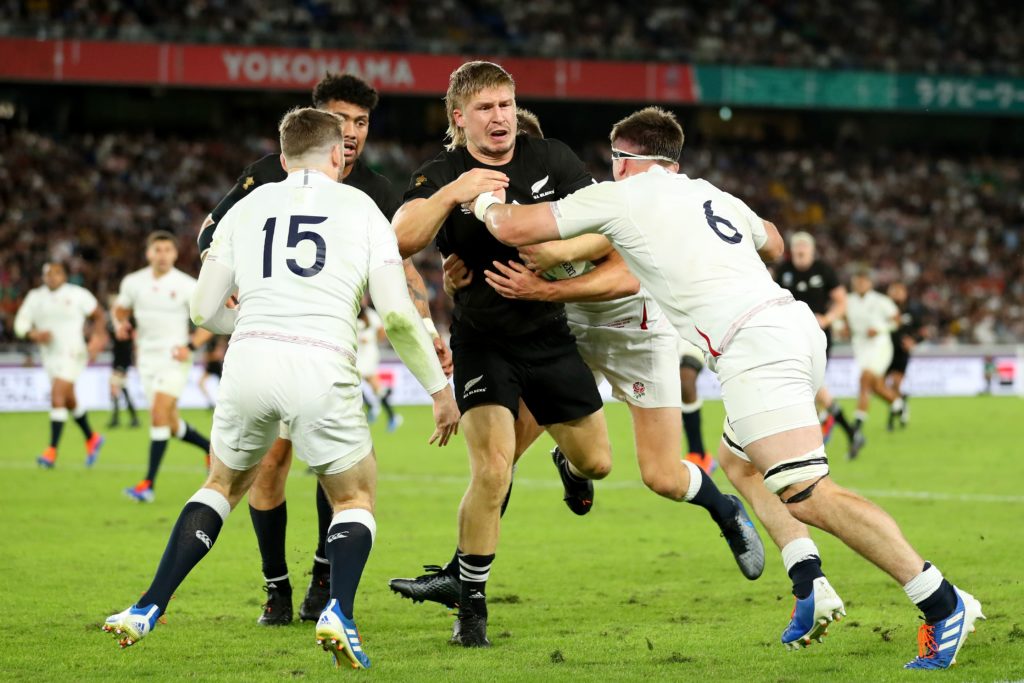
England provided it and the pain of that game is going to live in the All Blacks squad for years and it’s already making an impact.
Blues captain Patrick Tuipulotu says that this time last year his intention was to head offshore after Super Rugby in 2020.
It wasn’t just the arrival of Covid that made him re-think. The need to stay and bury the memory of Yokohama was the real driver to him signing for another three years.
“That’s something on my mind,” says Tuipulotu. “I was sitting on the bench [against England] wondering when I was going to get on because I was getting an itch and thinking that if I got on I could make an impact straight away. I was hungry for it.
“That is something that drives me and motivates me to have another crack.”
That’s something on my mind. I was sitting on the bench [against England] wondering when I was going to get on because I was getting an itch and thinking that if I got on I could make an impact straight away. I was hungry for it.
All Blacks lock Patrick Tuipulotu
Jack Goodhue, who only re-committed for one year before the World Cup, recently followed Tuipulotu and signed through to 2023. He too cited the need to make amends: “I love playing rugby for the Crusaders and Northland, and obviously to play again in another World Cup, a lot of things depend on that, but if my form is good in 2023, hopefully I get a chance to redeem what happened in 2019.
Of the 31 players the All Blacks took to Japan last year, 23 are in the current All Blacks squad and of those, seven – Whitelock, Brodie Retallick, Tuipulotu, Scott Barrett, Beauden Barrett, Anton Lienert-Brown and Goodhue – have already committed to New Zealand through to 2023.
Another eight have signed until 2022 and with coach Ian Foster also having been part of the failed 2019 campaign, the All Blacks are flooded with men who are carrying the deepest personal pain that they will be using to drive themselves.
And they are quite openly going to harness that as Whitelock, who was drafted into the All Blacks as a 21-year-old, reveals.
“I was called into the team in 2010. Initially Darren Shand the manager rang me up and asked me to come in for a couple of days because there were a few injuries. I walked into a team that was very focused on the 2011 World Cup. It was at home and they hadn’t won for 24 years.
“I wasn’t even alive when the 87 World Cup was on and I just remember that everyone was pushing towards that tournament in 2011. Everything that we did, that [World Cup] was in the back of their minds.
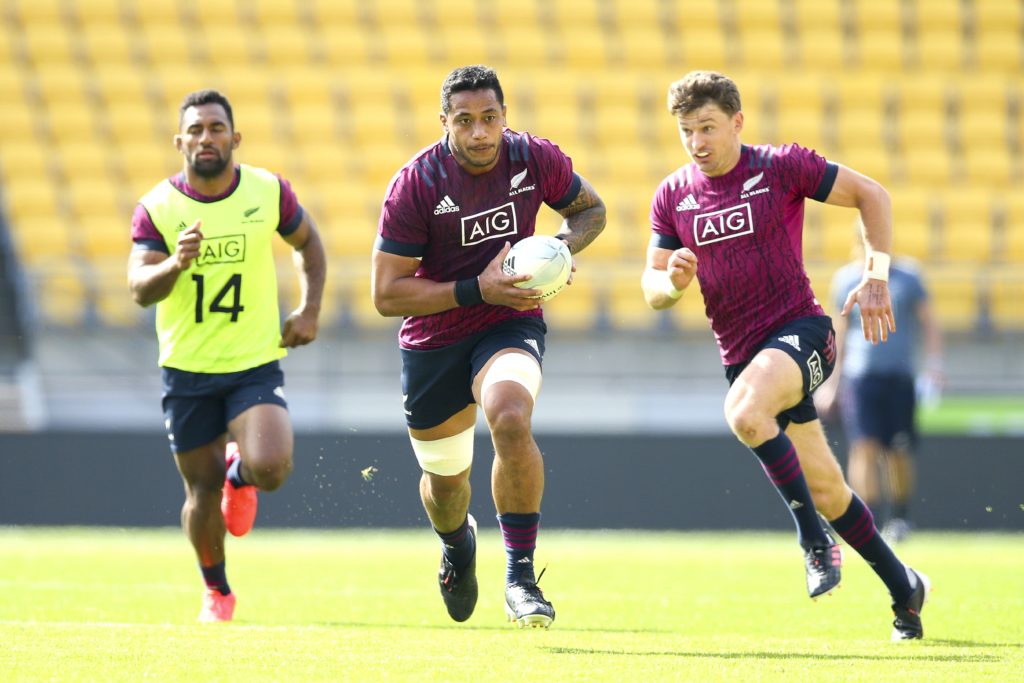
“It wasn’t in the forefront in the sense that the World Cup was next year. It was more a sense that we talked about the need to get better, day to day, week to week, so that when we do arrive at the World Cup we will be in a good spot to go.
“It is very similar to where we are now. There are a lot of guys now who were in Japan last year and we have never hidden from the fact that we were not happy with how the tournament finished. We obviously wanted to go the whole way. We have got to take that lesson and get better from it so we don’t relive those things in another three and a half years.
“That is something we are all aware of. Are we pushing towards the 2023 World Cup at the moment? I would say yes and no. We are aware of it and we have to make sure that we keep learning.”
England richly deserved their victory last year and hopefully they enjoyed the moment because they have lit a fire within the All Blacks, one that is likely to rage through to France 2023 and destroy everything in its path.


Comments
Join free and tell us what you really think!
Sign up for free